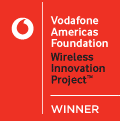A Workshop on Connected, Autonomously Powered Systems
A workshop on Connected, Autonomously Powered Systems was organized by Prof. Harish Krishnaswami and EnHANTs PIs Prof. John Kymissis and Prof. Mingoo Seok. The workshop was sponsored by the New York Section IEEE EDS/SSCS Joint Chapter.
The workshop included the following invited talks:
- Prabal Dutta (Michigan): Realizing the Next Computing Class
- Suman Datta (Penn State University): Emerging Devices for Energy Efficient Electronics
- Gil Zussman (Columbia University): Networking Energy Harvesting Nodes - Measurements, Algorithms and Prototyping
- Juin Liou (University of Central Florida): Recent Development on Electrostatic Discharge (ESD) Protection of Low-Voltage RF Integrated Circuits
- Peter Kinget (Columbia University): Ultra Low Power, Short Range Wireless Communications: from Using RF Pulses to Ultrasound Clicks
- Naveen Verma (Princeton): Sensing on a Very Large Scale: Bringing CMOS Together with Thin-Film Electronics for Complete Systems
In addition, it included a poster/demo session in which the EnHANTs prototype and testbed was demonstrated by Earvin Caceres, Richard Chiou, Robert Margolies and Benjamin Zhu.

ACM SenSys 2011 Best Student Demo Award
An EnHANTs demo titled Organic Solar Cell-equipped Energy Harvesting Active Networked Tag (EnHANT) Prototypes received the Best Student Demo Award at the ACM Conference on Embedded Networked Sensor Systems (ACM SenSys 2011), a premier sensor networking conference.
This demo showcased integration of the EnHANT prototypes with novel custom-developed organic solar cells and with novel custom UWB transceivers, and demonstrated various EnHANT adaptations to dynamic environmental energy.
Video of the demo:
EnHANTs paper won the 2011 IEEE Communications Society Award for Outstanding Paper on New Communication Topics
A paper by Maria Gorlatova, Peter Kinget, Ioannis Kymissis, Dan Rubenstein, Xiadong Wang and Gil Zussman won the 2011 IEEE Communications Society Award for Outstanding Paper on New Communication Topics. The paper, titled "Energy Harvesting Active Networked Tags (EnHANTs) for Ubiquitous Object Networking", appreared in the IEEE Wireless Communications Dec. 2010 Special Issue on the “Internet of Things: the Next Big Thing in Communications?” (bib entry).
The IEEE Communications Society Award for Outstanding Paper on New Communication Topics is given to outstanding papers that open new lines of work, envision bold approaches to communication, formulate new problems to solve, and essentially enlarge the field of communications engineering.

On behalf of all authors, Maria Gorlatova receives the award at the 2011 IEEE Global Communications Conference (GLOBECOM'11) Award Ceremony.
Indoor Light Energy Measurements Added to CRAWDAD Wireless Data Repository
The indoor radiant energy measurements we have been collecting over the last 1.5 years have been contributed to the CRAWDAD wireless data repository, and can be accessed at http://www.crawdad.org/columbia/enhants [bib entry].
These first-of-their-kind measurements allow characterizing light energy available in different environments, and can be used as energy inputs to simulators and emulators. We have used the measurements in two recent papers (IEEE INFOCOM'11 paper "Networking Low Power Energy Harvesting Devices: Measurements and Algorithms" and an IEEE WiOpt'11 paper "Performance Evaluation of Resource Allocation Policies for Energy Harvesting Devices"), and are thrilled to have an opportunity to share the measurements through CRAWDAD.
The EnHANTs project received a DHS grant
Prof. Rubenstein and Prof. Zussman take part in a project which is led by Civionics and funded by the Department of Homeland Security (DHS). The project entitled "WiWarn: An Intelligent Wireless Structural Sensing Solution for Urban Search and Rescue" will focus on developing a wireless system to assist first responders in evaluating the integrity of partially collapsed structures.
The EnHANTs project received a $1.2M NSF Grant
Professors Rubenstein, Kinget, Kymissis, Wang, and Zussman received a $1.2M grant from the Network Science and Engineering (NetSE) Program of the National Science Foundation (NSF).
The team aims to develop Energy Harvesting Active Networked Tags (EnHANTs) which are thin and flexible tags of a few square centimeters that can be attached to everyday objects, such as clothing, furniture, walls, books, toys, and other household and office items. The tags will harvest energy available in the environment such as light or vibration energy. The tags would be able to communicate with each other over short distances to form wireless networks.
EnHANTs will enable networking virtually every object around us and will allow expanding the 'Internet of Things' to include everyday objects that are traditionally not networked. Novel applications, not available with today's technologies, include lost item recovery, object tracking, disaster recovery, and emergency alerts.
The project takes an interdisciplinary approach to address the severe energy constraints imposed by using harvested energy alone. In particular, the team combines expertise in networking, communications, low-power electronics, and organic energy-harvesting devices to make the efficiency improvements of several orders of magnitude that are required for the realization of EnHANTs. New flexible organic energy harvesting and storage devices will be combined with energy management electronics; ultra low power pulse-based wideband wireless communications will be combined with novel pulse communication techniques for ultra-low power wireless connectivity; and, novel networking paradigms will start from and energy-driven approach to provide ad-hoc networking and interfaces with traditional networks and computing devices. A test platform of networked tags will be deployed and tested demonstrating the energy harvesting, communication, and networking components developed using custom hardware.
For more details see http://www.nsf.gov/awardsearch/showAward.do?AwardNumber=0964497


